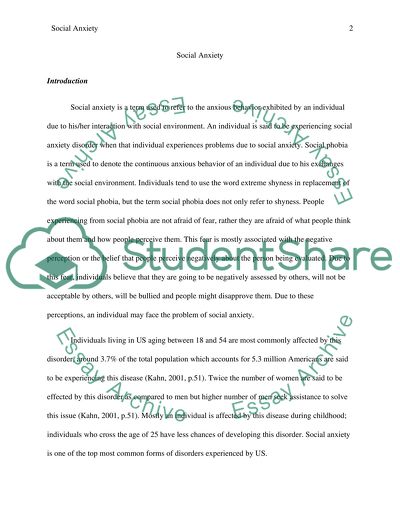Cite this document
(“Social anxiety Research Paper Example | Topics and Well Written Essays - 1750 words”, n.d.)
Social anxiety Research Paper Example | Topics and Well Written Essays - 1750 words. Retrieved from https://studentshare.org/english/1456296-social-anxiety
Social anxiety Research Paper Example | Topics and Well Written Essays - 1750 words. Retrieved from https://studentshare.org/english/1456296-social-anxiety
(Social Anxiety Research Paper Example | Topics and Well Written Essays - 1750 Words)
Social Anxiety Research Paper Example | Topics and Well Written Essays - 1750 Words. https://studentshare.org/english/1456296-social-anxiety.
Social Anxiety Research Paper Example | Topics and Well Written Essays - 1750 Words. https://studentshare.org/english/1456296-social-anxiety.
“Social Anxiety Research Paper Example | Topics and Well Written Essays - 1750 Words”, n.d. https://studentshare.org/english/1456296-social-anxiety.


